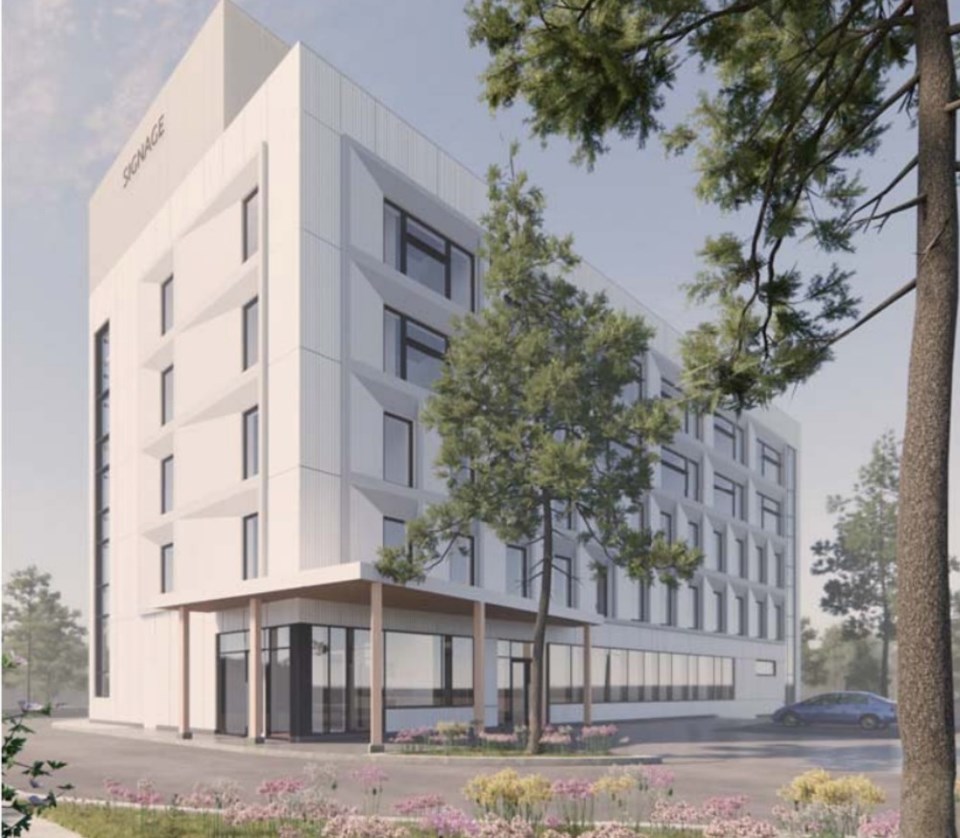Proposals for a men’s emergency and transitional shelter for a site on Yonge Street, just south of the railway bridge in Aurora, have not been fully placed on the backburner.
The Regional Municipality of York is set to solicit public feedback at a special open house at the Aurora Public Library on Monday, Jan. 29 from 5 to 8 p.m.
If brought to fruition, the emergency and transitional shelter will share land with a York Region pumping station already operational on site.
Proponents of the plan have said the site is an ideal location due to its proximity to transit and a major commercial corridor, while area residents have spoken out against the plan, citing neighbourhood safety concerns and impact to property values.
Last spring, when the matter was last before Aurora council, the Ontario Human Rights Commission weighed in on the residential backlash the proposal had received, stating the “fears” shared by community members were no basis for lawmakers to reject the plan.
“Media reports have included comments from the Jan. 24 meeting, where community members shared their fears that this project may result in increased crime, lowered property values, and a possible threat to child safety,” said the commission in its letter. “These comments represent discriminatory attitudes toward their neighbours and fellow community members experiencing homelessness and mental health and addiction disabilities. These fears are not a legal basis upon which the town can make zoning or planning decisions.
“The OHRC is concerned that delaying or denying approval of this project may create barriers to establishing desperately needed emergency and transitional housing and may also be discriminatory under the Ontario Human Rights Code. The town’s legal obligations under the code are further supported by provincial planning law, as well as federal and international law. Based on the Human Rights Obligations [noted in the letter] the OHRC calls on council to allow the emergency and transitional housing project to proceed as soon as possible.”
Among the points made by the commission in the letter is the code prohibiting “actions that discriminate based on certain grounds in providing housing and services”; that “people zoning — or the attempt to regulate based on who will live in the housing” can be a “violation of people’s rights to be free from discrimination in housing — which means it can be against the law”; and that “people do not have the right to choose their neighbours.”
“The Town of Aurora has a legal obligation to make sure it does not impose unnecessary restrictions on emergency and transitional housing that could have a discriminatory impact on code-protected groups,” they wrote. “Certain groups protected under the code are more likely to require emergency and transitional housing. This is particularly true for people who receive public assistance, people living with disabilities, including mental health, addictions and complex trauma, and racialized people. Vulnerable groups are often adversely affected when emergency and transitional housing is restricted.
“This is the law — but it also makes good sense. People who need emergency and transitional housing face many barriers, both individual and institutional, that prevent them from taking part fully in society. COVID-19 and the skyrocketing cost of things like housing and food has further exacerbated these challenges and has had a disproportionate impact on vulnerable groups, including people who need emergency and transitional housing. Discrimination compounds the daily challenges vulnerable groups face and is a further affront to their dignity.”
While Mayor Tom Mrakas responded to the letter stating the town and council “are fully committed to working with our partners” to provide emergency and transitional housing, he said as important as it is for members of the public to express their views in public forums, that doesn’t “necessarily mean…that all the perspectives expressed by residents factor into the decisions made by council.”
According to York Region, a men’s emergency and transitional shelter such as this is “more than just a place to stay.”
“Men experiencing or at risk of homelessness in York Region come from many different backgrounds and life circumstances,” said the region. “Factors leading to homelessness can include: rising housing costs/shortage of affordable housing; illness, personal or family crisis; [and] job loss or reduced hours of work.
“The three pillars for the emergency and transitional housing model [include]: prevent homelessness before it starts by providing supports to help people before they are in crisis and experience homelessness; provide inclusive, client-centred programs to support recovery; [and] end homelessness through supports that help people find and keep housing.”
Following the Jan. 29 open house, residents can offer additional feedback at a statutory public meeting currently slated for Feb. 13 at 7 p.m. at Town Hall.
Brock Weir is a federally funded Local Journalism Initiative reporter at The Auroran.


